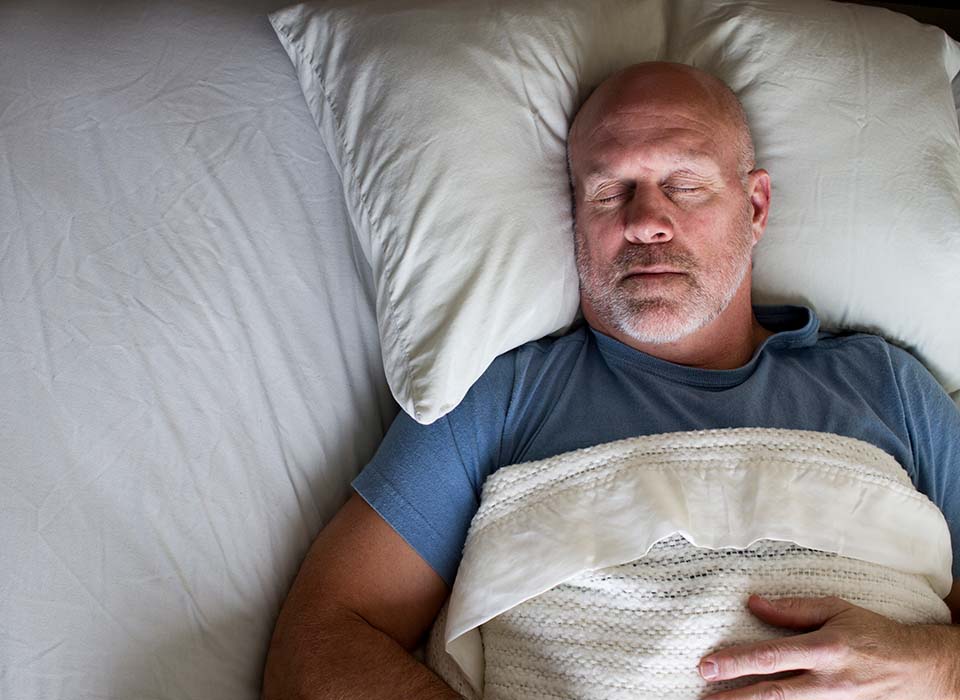The average person spends almost a third of their life sleeping and resting. The right sleeping position will reduce or eliminate back and neck pain while an improper one can increase the pain or stiffness. The best sleeping position promotes healthy spinal support from your head to your hips, so sleeping on your side or back is more beneficial than sleeping on your stomach.
Sleeping on your side
The flexibility of your spine decreases with age so most older adults find sleeping on their side preferable. The benefits of sleeping on your side include a healthy spine alignment, less snoring and reduced heartburn. It also is the position least likely to result in back pain. This positioning is best for pregnant women, people with heartburn, people who suffer from back pain, people who snore and those who are older in age.
When sleeping on your side, ensure that your knees are bent so your heart can pump blood to your lower legs and feet. If you are pregnant, sleep on your left side because it prevents pressure on the liver and promotes healthy blood flow to the fetus, uterus, kidneys, and heart. If you are experiencing back pain, try sleeping with a pillow between your knees to relieve the tension on your spine and keep your body in alignment. Sleeping on your side can cause shoulder tightness or soreness so avoid this position if you experience any discomfort in your shoulder.
Sleeping on your back
Lying flat on your back is another recommended sleeping position. When sleeping on your back, your neck and spine are aligned and your body weight is evenly distributed, preventing back and neck pain. If propped up with a pillow into a more sitting position, laying on your back can help relieve congestion or allergy symptoms. Sleeping on your back is best for those who experience lumbar spinal pain, people who experience neck pain, and people with nasal congestion.
If you are experiencing neck pain, lying on your back with the proper head support is the best way to sleep. Get a pillow with high neck support that allows the head to sink lower. Memory foam pillows are good options, but you can also roll a towel and place that under your neck for extra support.
Sleeping on your stomach
Sleeping on your stomach is the least recommended sleeping position. Sleeping in this position may prevent a good night’s sleep because your rib cage must work against gravity to breathe deeply. This position offers the least amount of support for the spine so those who have neck or back pain should avoid sleeping on their stomach.
